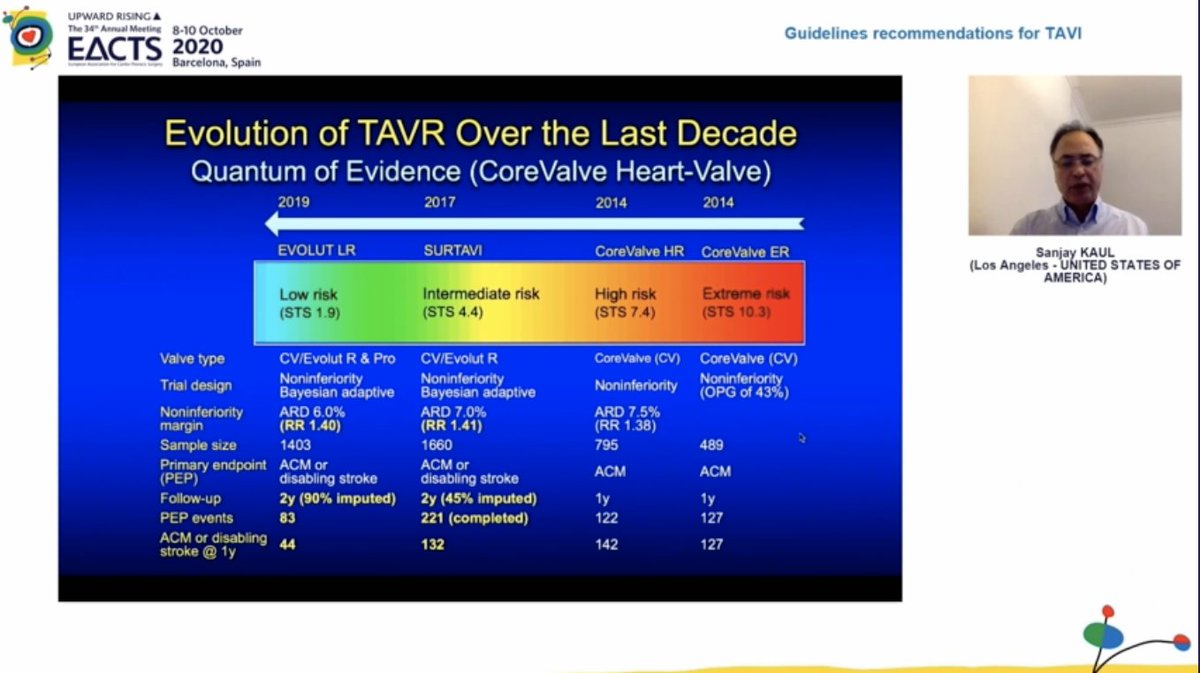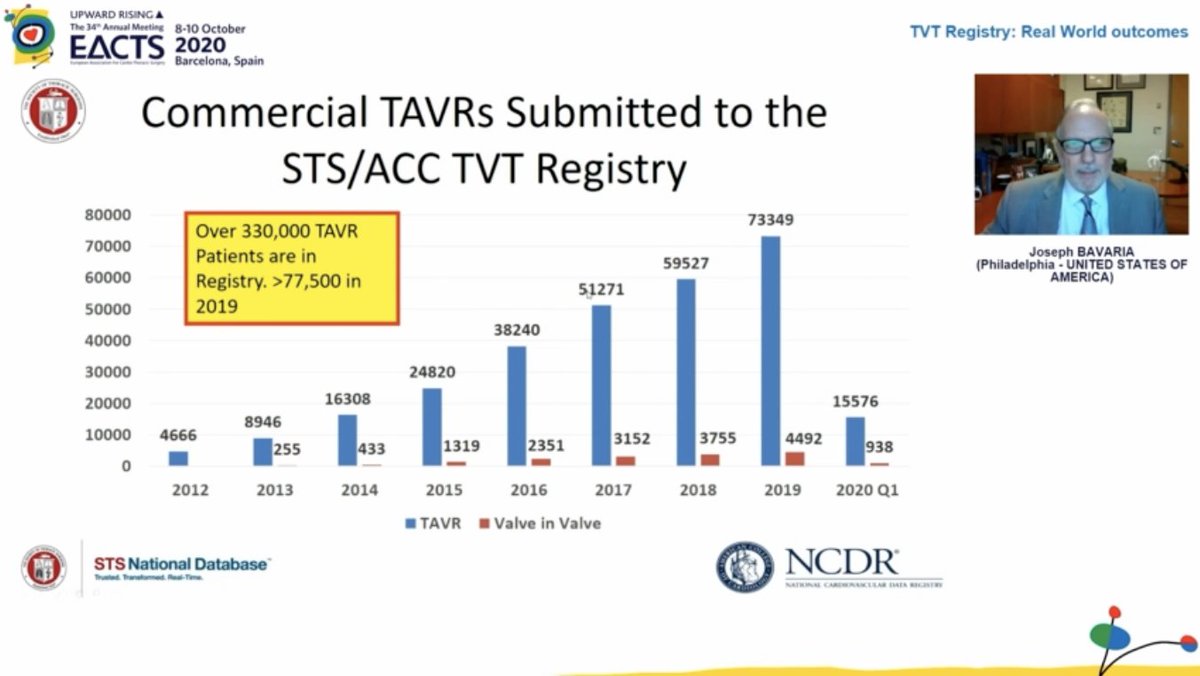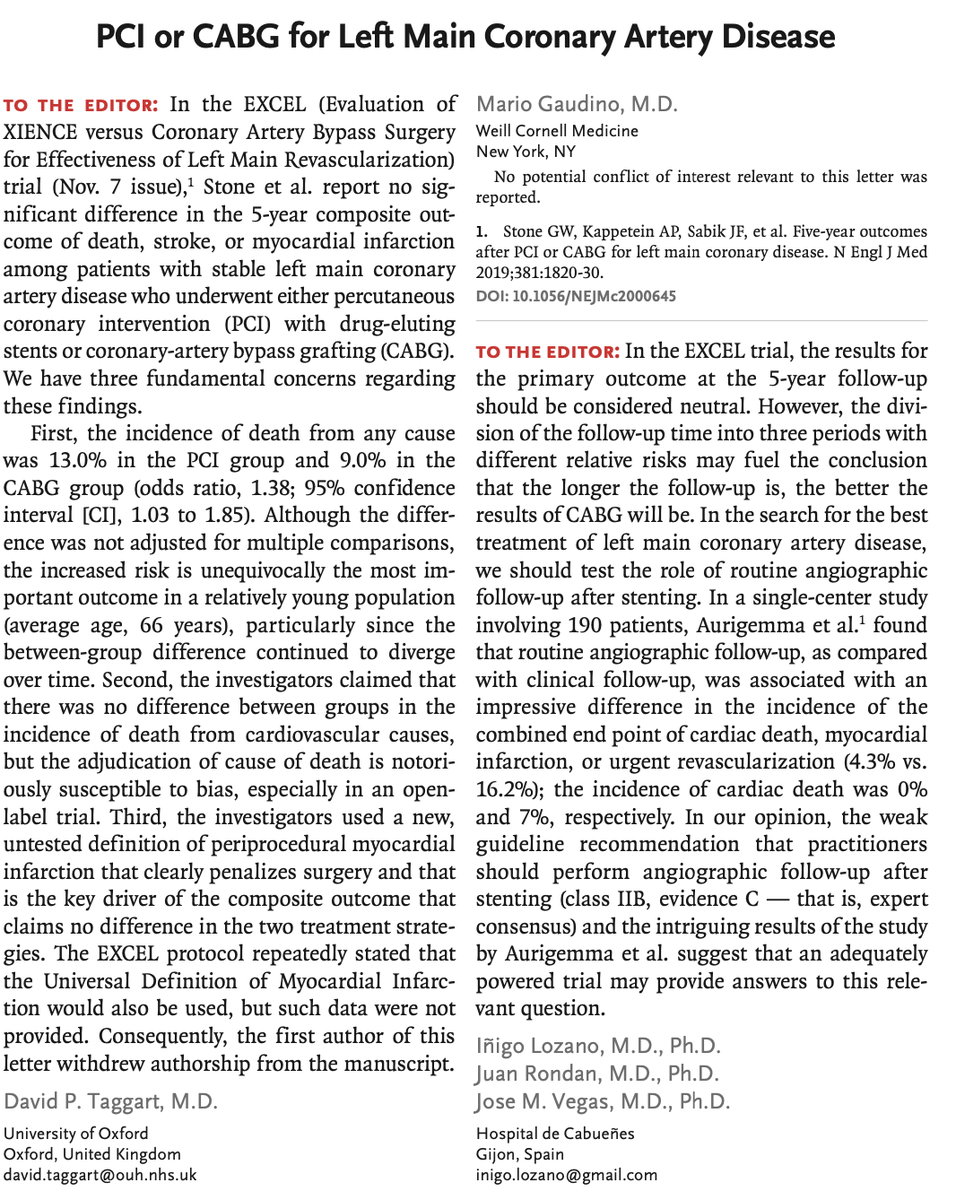
Excellent investigative journalism from @deb_cohen and @Edsbrown on the #EXCEL debacle and how @BBCNewsnight reported the behind-the-scenes issues.
It's great that @escardio and @EACTS are coming together to revise guidelines. We still need #retractEXCEL
medscape.com/viewarticle/93…
It's great that @escardio and @EACTS are coming together to revise guidelines. We still need #retractEXCEL
medscape.com/viewarticle/93…
The insights from the DSMB and how data was truncated at 3 yrs for plenary session presentation just before guidelines were written, while DSMB chair called the investigators out on this is baffling 



You can argue that this is just different ways of presenting the same data. I disagree. This is suppressing data to control the discussion. Akin to Bill Barr's summary of the Mueller report. Doesn't give the full picture. An informed discussion requires #opendata
The indictment of the guidelines process is damning. @escardio commissioned an external review by expert @brophyj, yet it wasn't shared with all involved and dismissed. This seems akin to the one-line dismissal of #ORBITA trial more recently: indefensible
This illustration puts the main issues at hand ever so clearly. How can we trust data & guidelines from those involved, when they are judge and jury, and stand to profit from all of it? 

Two take-home messages from all of this:
1. This is just one trial, for which we have gotten an inside look and come back with huge concerns, from these investigators. @deb_cohen, we need you to look at more trials with the same PI: COAPT, etc.
1. This is just one trial, for which we have gotten an inside look and come back with huge concerns, from these investigators. @deb_cohen, we need you to look at more trials with the same PI: COAPT, etc.

2. We are learning from this, and working on guidelines we can trust from @escardio and @EACTS. I look forward to collaborating in a true #HearTeam to improve these guidelines and offer the best to our patients!
• • •
Missing some Tweet in this thread? You can try to
force a refresh



















